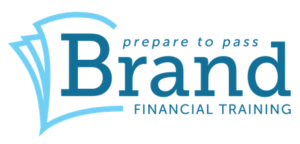In the latest article from Brand Financial Training, the technical team examine the influence of investors’ behaviours and biases when making financial decisions.
Understanding how psychological factors influence our financial decisions is an important first step to changing our behaviour.
Modern portfolio theory suggests that we are all rational investors and make decisions purely on risk and reward. But this is too simplistic as we are all influenced by deep rooted biases that affect our decisions. We are human beings after all and do not always behave rationally!
Behavioural finance attempts to explore those biases that can affect our investment decisions.
Loss aversion
This refers to the fact that most people will prefer to avoid losing what they already have rather than make a gain of an equivalent value. We generally feel a gain much less than we feel a loss.
This can explain why some people hold on to investments that are showing a loss much longer than perhaps they should. The hope is that over time the investment will do better. By selling the investment the loss would be actually realised whereas whilst it is still showing as a paper loss, the hope is still there.
Regret
Loss aversion leads into a sense of regret and it is this fear of regret that means investors hold onto losses for too long or conversely sell too soon to take the profits in case those become losses.
Overconfidence
When someone is overconfident in their decision making, this can lead to them over trading which can ultimately earn lower returns. People believe their past successes are down to their own skill and judgement which leads to increased confidence whilst explaining any failed investments on bad luck rather than reassessing whether they were to blame.
Anchoring
When we get fixed on a particular number or outcome, this is an ‘anchor’. When it comes to investments, this behaviour comes into play when we decide to sell. For example, if we buy a share for £10, the decision to sell it will be based on that price. If that share has gone down to £8 the decision whether to hold or sell should be based on the company. Those that are subject to an anchoring bias however will base their decision purely on the fact they paid £10 for each share. Recognising this behaviour in clients can help them do something to change it.
Herding
When people are concerned about markets, they will often simply copy the behaviour of others. They will take the advice given by experts in newspapers and other media, and because they don’t want to miss out, it then leads to substantial inflows into a particular asset class or sector. We have seen this demonstrated in various sectors, not least in the late 90’s when everyone raced to technology companies …… this created a bubble which eventually had to burst. One way of avoiding doing this is to pay attention to the information that, for example, price earnings ratios can provide, to see if a share price is already overinflated.
Endowment effect
This refers to the situation where someone puts a much higher value on something than the market value. This often happens when someone has an emotional attachment to something, for example, if we have inherited shares from a deceased parent we may have a tendency to simply hang onto them, regardless of whether they fit in with our risk profile or investment objectives.
A method of trying to avoid the endowment effect is to have a clear plan in place, of when to buy and sell investments which may help avoid becoming attached emotionally to them.
In summary, behavioural finance looks at the psychology of investment and can explain why people are not always rational. Having knowledge of this can allow advisers to help their clients understand some of the behaviours they are demonstrating with their own portfolios.
About Brand Financial Training
Brand Financial Training provides a variety of immediately accessible free and paid learning resources to help candidates pass their CII exams. Their resource range ensures there is something that suits every style of learning including mock papers, calculation workbooks, videos, audio masterclasses, study notes and more. Visit Brand Financial Training
Main image: jan-genge-GvnIvq7LPkY-unsplash





























